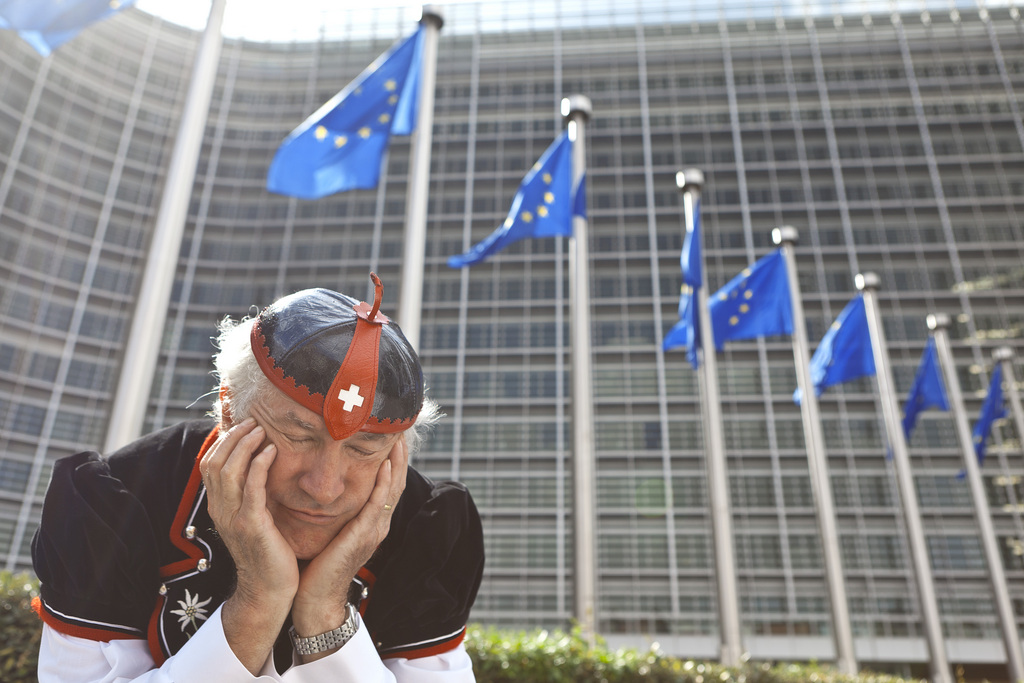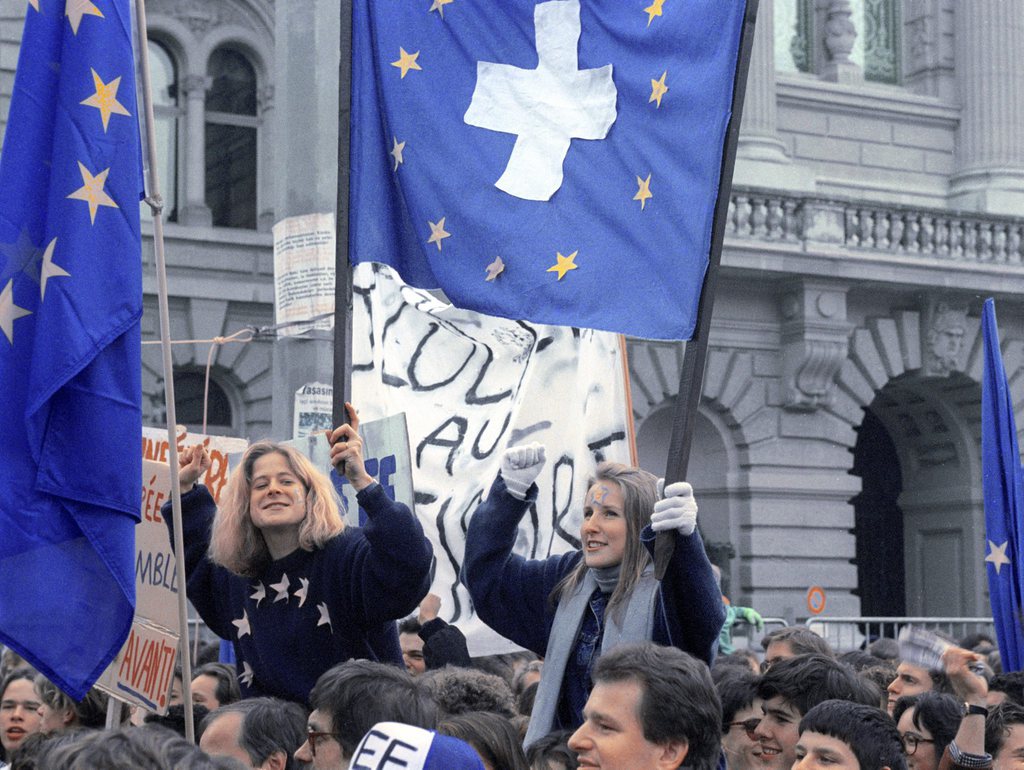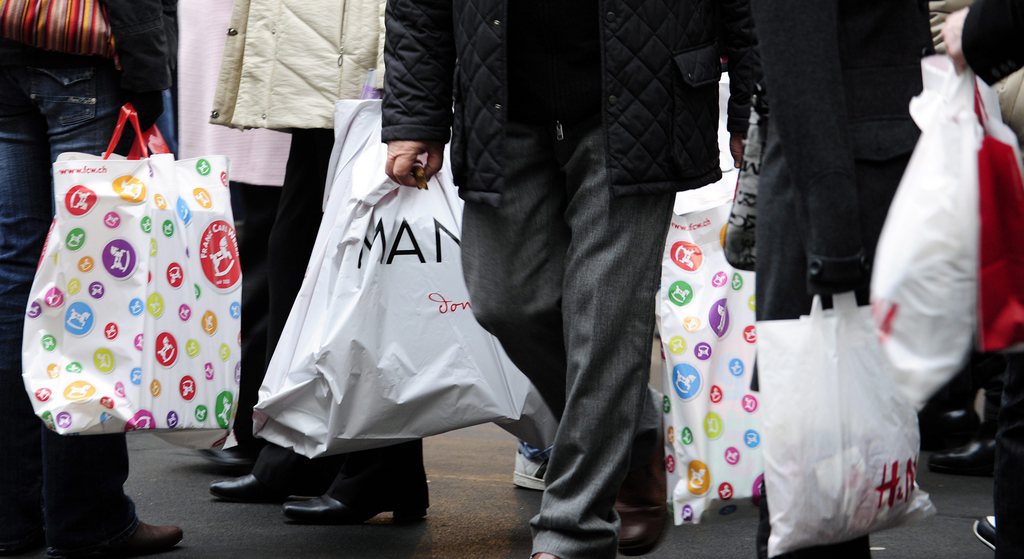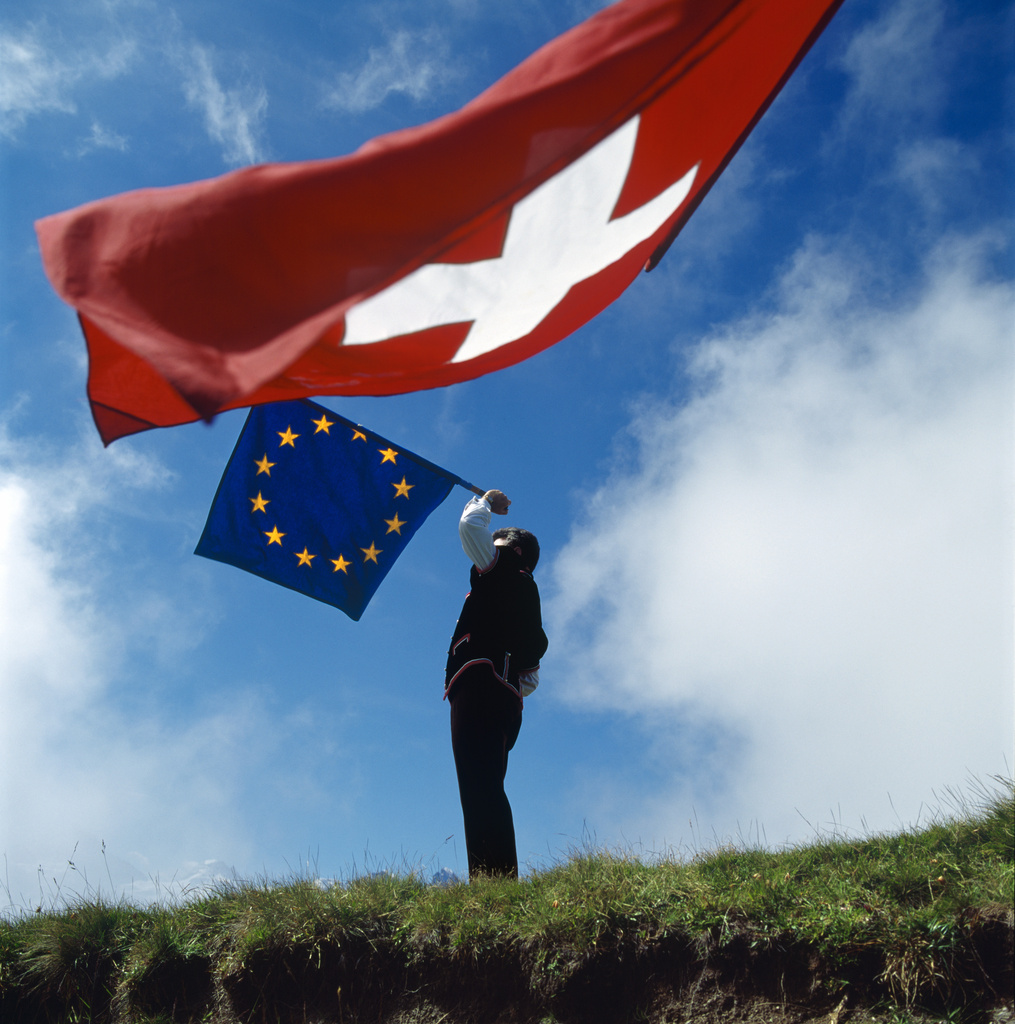Brussels airs grievances with Bern

Switzerland’s special relationship with the European Union has reached a dead end, according to the latter, which has drawn up a long list of complaints and says Switzerland should “dynamically assume” EU law.
On Thursday, EU transport and energy ministers formally adopted their “Conclusions on relations with Switzerland”. This text, accepted without discussion, outlines 12 points on the state of the Bern-Brussels relationship, which currently features more than 200 bilateral agreements. It also contains conditions for moving forward.
The document begins by declaring that the bilateral accords concerning the domestic market are “at a dead end, partly because the institutional issue has not been resolved”.
For years, the EU has called on Switzerland to adopt an institutional framework that would enable a dynamic adaptation of the accords to the constantly evolving European legislation – as well as a uniform interpretation of these accords.
Brussels is also keen on an “independent mechanism for monitoring and carrying out legal decisions” in addition to a “mechanism for settling disputes”.
At present, every advance of Community law is – in theory – at the mercy of Swiss lawmakers. In practice, actions are generally taken without any resistance.
“Multilateral project”
Nevertheless, there needs to be security, which is why the EU believes “no negotiations concerning Switzerland on the domestic market can be concluded without this issue being resolved”.
It added that “any future development in this complex system of accords would increase legal insecurity”.
In the EU’s view, this would endanger not only domestic market harmony, but also the EU’s relationship with its partners in the European Economic Area (EEA): Iceland, Liechtenstein and Norway. Apparently, Norway is already exasperated by Switzerland demanding bespoke treatment.
The EU drives the point home, considering Switzerland to have gone so far that it is no longer engaged in a bilateral relationship but in a “multilateral project”.
Vague terminology
Last summer, Swiss President Eveline Widmer-Schlumpf sent a letter to Brussels containing potential negotiable solutions. This was “received favourably” by the EU.
To respond to European demands of improvements in the current inefficient monitoring system, Bern proposed the implementation of a non-European system which would be national and independent.
However, this idea was rejected by the EU, which called for an “international supervisory mechanism and legal control”.
Several sources in Brussels admitted to swissinfo.ch that they weren’t fully sure what benefits this somewhat vague terminology would have. But the document describes further that “the institutional framework should present a level of security and independence equivalent to the mechanisms created within the framework of the EEA”.
Despite all this, the EU attaches great importance to pursuing dialogue with its fourth-largest trading partner, asking the European Commission to report back on any progress in discussions which could offer “the chance to broach opening talks with Switzerland”.
Regrets
Besides the institutional question, these European “conclusions” are accompanied by several shots at Switzerland – beginning with the accord for free movement.
The EU “regrets that Switzerland has reintroduced the safeguard clause for eight [mainly former Soviet] states” – a measure “clearly in violation” of the agreements.
The text also mentions cantonal corporate tax rates – a source of conflict between Bern and Brussels for several years. Cantons levy preferential tax rates on the overseas profits of thousands of privileged multinational firms based in Switzerland – much to the EU’s chagrin.
The EU did, however, highlight the Swiss contribution to EU enlargement – a development from which Switzerland was also a benefactor, it said, thanks to facilitated access for Swiss companies to the single market.
To date, Switzerland has contributed SFr1.257 billion ($1.4 billion) over five years.
“Initial studies show that this mechanism has been a success,” said the EU, which has asked its executive, the European Commission, to launch exploratory talks for another cheque.
Swiss reaction
On Thursday, the Swiss government defended the bilateral way, denying it was at a dead end.
Widmer-Schlumpf said she believed the EU had “recognised that this path will continue”. Speaking at a media conference in Bern, she said it had merely “registered certain reservations”.
She added that the question of how the Bern-Brussels relationship would develop would continue to occupy Switzerland in the coming year.
Economics Minister Johann Schneider-Ammann also denied the end of bilateralism.
“I’m convinced that it remains – and has to be – possible to go further down the bilateral path.”
Nevertheless, Schneider-Ammann said he understood the criticism from Brussels and that Switzerland took the accusations seriously.
A spokesman for the foreign ministry said the EU’s conclusions were a basis for new talks.
(Adapted from French by Thomas Stephens)

In compliance with the JTI standards
More: SWI swissinfo.ch certified by the Journalism Trust Initiative




You can find an overview of ongoing debates with our journalists here. Please join us!
If you want to start a conversation about a topic raised in this article or want to report factual errors, email us at english@swissinfo.ch.